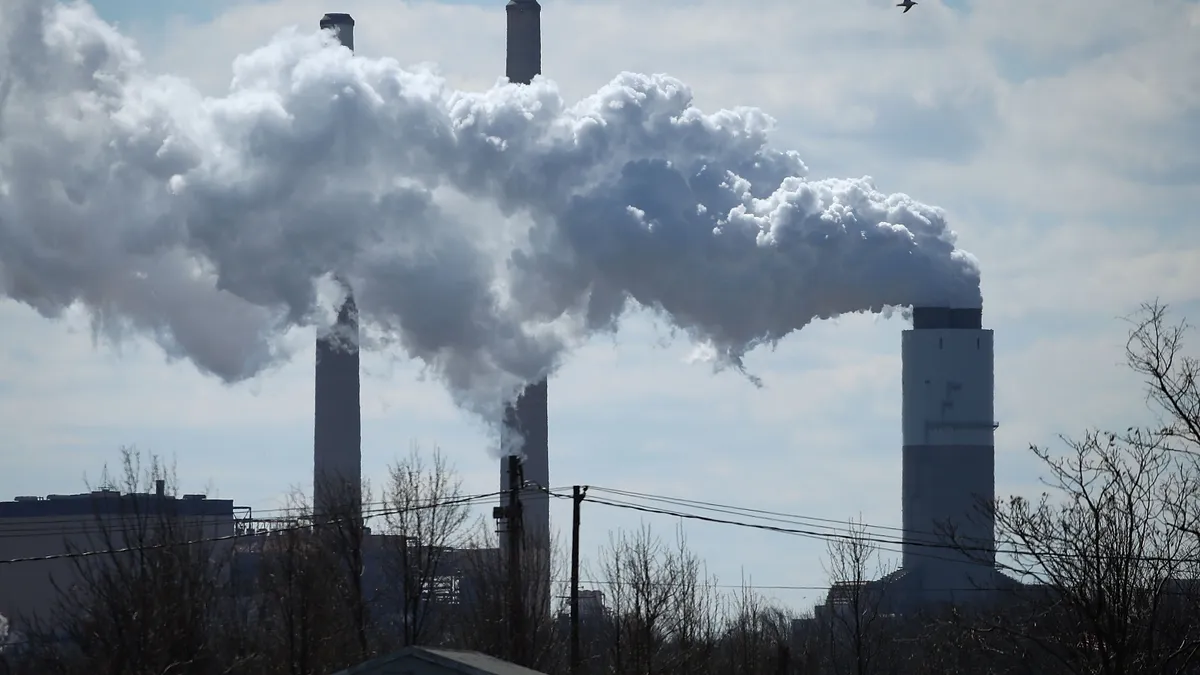Dive Brief:
- West Virginia Treasurer Riley Moore said he sent notices to six financial institutions last week, warning them their institutions appear to “be engaged in boycotts of fossil fuel companies,” according to West Virginia law.
- The six banks that received notice Feb. 22 about potentially being added to the state’s restricted financial institution list are BMO, Citi, Fifth Third, Northern Trust, TD and HSBC, according to a report by West Virginia Public Broadcasting.
- The banks have 30 days to issue a response to the treasurer or they will be added to the list 15 days after the response deadline. The law, similar to a pair passed by the Texas state legislature in 2021, disqualifies institutions on the list from eligibility for state banking services contracts.
Dive Insight:
Moore proposed the creation of the restricted financial institution list in 2022, and it was passed by the state legislature that year. The initial list, published in July 2022, restricted five institutions: BlackRock, Goldman Sachs, JPMorgan Chase, Morgan Stanley and Wells Fargo.
This is the first potential update to the list since then, prompted by Moore’s office expanding the scope of its research into the financial institutions. Moore said in a statement West Virginia “took an unprecedented stand” to protect financing of the state’s coal, oil and natural gas industries with the law’s passage in 2022, and the latest actions represent the state’s “continued commitment to protect taxpayer dollars from harmful ESG policies.”
“While we have been effective in our fight against ESG activism, we must remain vigilant to ensure we do not entrust state funds to banks that are engaged in coordinated political efforts to destroy our state’s critical industries,” Moore said.
The state treasurer said the goal of the list, and its notices, is to pressure companies “to return to fairer, more objective treatment of our coal, oil and natural gas industries.” He pointed to Bank of America recently backtracking on its pledge to cease coal financing as a positive sign, though the financial institution is neither on the state’s list nor did it recently receive a notice letter.
West Virginia is not the only state to follow Texas’ lead on banning business with banks or institutions who “boycott” the fossil fuel industry: Kentucky, Oklahoma, Florida, Louisiana and Missouri also passed similar legislation.
However, the bans have cost the states money. Consulting firm Econsult Solutions Inc. estimated in January 2023 that Texas’ laws banning companies who “boycott” the fossil fuel or firearm industries from working on municipal bonds cost the state between $303 million to $532 million in additional costs in the first year.
ESI then applied Texas’ calculations to West Virginia, estimating the bill would cause the total interest costs for state bonds issued in 2022 to increase between $9 million to $29 million. ESI said that while West Virginia’s bill has similar implications as Texas’, it targets a narrower subset of communities.














